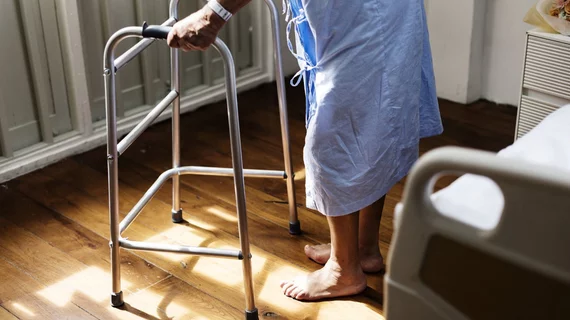Can COVID-19 lead to bioprosthetic valve thrombosis? What specialists need to know
COVID-19 patients with prosthetic heart valves may face a heightened risk of bioprosthetic valve thrombosis, according to a new analysis in Circulation: Cardiovascular Imaging.
“COVID-19 predisposes patients to both venous and arterial thrombosis,” wrote lead author Steven A. Alexander, MD, of the Icahn School of Medicine at Mount Sinai in New York City. “The impact this may have on patients with endovascular prosthetic material is unknown.”
Alexander et al. detailed the case of a 79-year-old patient who presented with a history of dyspnea and cough. The patient also had a history of recent hospitalizations: She underwent bioprosthetic aortic valve replacement four months prior to presenting and was treated for COVID-19-related pneumonia two months prior.
The patient’s care team turned to medical imaging to assist with the diagnosis. A transthoracic echocardiogram (TTE) revealed signs of prosthetic aortic valve stenosis, and a transesophageal echocardiogram showed “markedly thickened bioprosthetic valve leaflets. A CT examination, meanwhile, revealed signs of leaflet thrombosis. The patient was admitted and treated with an unfractionated heparin infusion. A follow-up TTE three months later showed clear signs of improvement.
“To our knowledge, this is the first report of prosthetic aortic valve thrombosis associated with COVID-19 infection,” the authors wrote. “This case reminds us that patients with prosthetic heart valves and endovascular devices may be at a particular risk of thrombotic complications from COVID-19. Healthcare providers should have a high index of suspicion for such complications and consider diagnostic imaging when appropriate. Further research is needed to determine the optimal anticoagulation strategy for both the prevention and treatment of bioprosthetic valve thrombosis in the setting of COVID-19 infection.”
The full analysis is available here, though edits may still be made before it is finalized.

